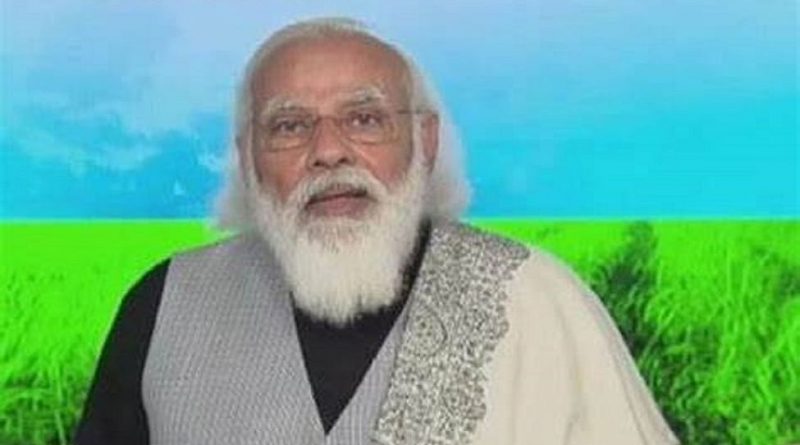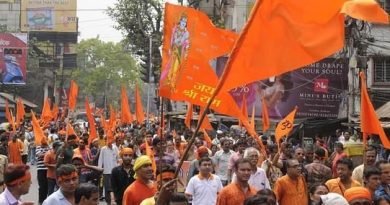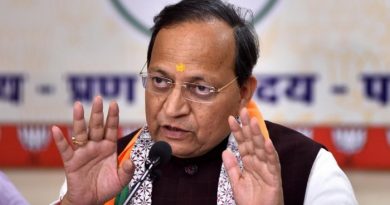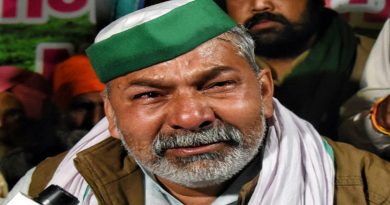| |
|---|
News Desk: Prime Minister Narendra Modi chose the last full week in 2020 to launch some important outreach to two sets of angry constituents: Muslims and the farmers.

It is his first outreach, to India’s alienated Muslim minority, that we are more interested in. First, because, as in 2019, he concluded the year with a pitch to India’s Muslims. Second, because, somewhat serendipitously, he chose 22 December to do so. Remember, last year, he had similarly spoken at Delhi’s Ramlila Maidan when the anti-CAA agitation was at its peak. Third, because his tone and political proposition to Muslims again seemed contrary to his party’s politics and actions. And fourth, because it followed a very significant statement by his home minister, and deputy any which way, Amit Shah, who stated clearly during his West Bengal visit that the process of implementing the Citizenship Amendment Act has been put off for the time being.
The deadline for framing rules under the new law is long over and now the government will have to go back to a Parliamentary committee for a third extension. How could we implement the law when the pandemic is raging, Shah said, adding that it’s better to wait until the vaccination process starts.
We will risk inferring from this that the government has realised the downside — for international relations, and even internal security — of pushing too hard with this strategy. Because, whatever the arguments on either side, it is seen internationally, and by a critical mass of people at home, as a policy of Muslim exclusion.
The prime minister’s choice of Aligarh Muslim University’s annual day for making this outreach was significant. Earlier this year, the same university was caught in a maelstrom of protests, police high-handedness and calumny. Now, Modi has described it as “mini India” and asked its students and faculty to present a good and fair picture of the country to the world.
The reference was obviously to the many foreign students who routinely come to study at AMU. At this point, the number is about 615 in a total of 22,000, besides the NRIs. The larger contingents come from Afghanistan (42), Bangladesh (68), Indonesia (66), Jordan (49), Nepal (20), Palestine (13), Iran (15), Thailand (117), Turkmenistan (21), Yemen (151), and Iraq (29).
There are smaller contingents even from the US, Mauritius, New Zealand and Nigeria. Each is a friendly country and of vital national strategic interest.
Just for the record, AMU also has a Pakistani woman student, in the dentistry college. The impressions these students take back of India are mostly formed on the AMU campus.
For the past year, that impression has been overwhelmingly negative. And young, aware Indian Muslims, who constitute a majority of its students and faculty, have had reasons to feel angry and alienated.
Yet, why should Modi bother? Muslims do not vote for him. If anything, the coming elections in West Bengal and Assam will bring back the need for polarisation, the tip of the BJP’s electoral spear.
The BJP under him and Amit Shah has done an incredible electoral job of collecting votes in a narrower catchment, excluding the minorities. They’ve made the Muslim vote irrelevant in the big picture. Why should they then bother to reach out to them now? Angry, frustrated, alienated and isolated Muslims may indeed cheer their base.
We have to go back exactly by a year, to 22 December 2019, and Modi’s speech at the Ramlila Maidan, for a clue. In that speech, he took appreciative note of the fact that Muslim protesters were using the Tricolour and the Constitution, and then qualified it by suggesting that they should, at the same time, be speaking against terrorism. That is the usual BJP/RSS Tebbit test for India’s minorities. For those of younger generations or not interested in cricket, this refers to British Conservative politician Norman Tebbit, who, infamously, put British citizens from the cricket-playing former colonies to the test of whether they supported England or their native countries’ teams in a Test match.
But Modi got off that kerb quickly, kept his tone friendly and benign, asserted that none of his welfare policies discriminated against minorities. Which, to be fair, is correct. Then, he topped that cake with icing of his choice: By listing all the prestigious national honours and awards he had been honoured with by important Muslim countries. That is what we see as a possible clue to his thinking.
Everybody likes awards, honours and adulation. Yet, whatever these mean to Modi personally, more important is that this was part of his very significant reaching out to Muslim, especially Arab, countries. This was a deft outflanking of Pakistan to its West. What he tried to the East, with Xi Jinping, failed.
Now, if the move with China failed — and at this point we have troops eyeball-to-eyeball and Pakistan has more or less ‘progressed’ to becoming a Chinese client state or protectorate — it is because Xi Jinping saw more value in that. The ploy with the Arab world, meanwhile, has worked so far. Saudi Arabia and the UAE, Pakistan’s closest friends, patrons and moneybags, have drifted far away. So far, that Saudis are demanding their loans back, China plays the white knight to rescue Pakistan, and the UAE has stopped issuing visas to Pakistani workers.
This is not a gain Modi wants to squander, particularly with a rapidly changing global environment. There has probably been a sizeable pushback from the friendly sections of the Islamic world on this.
How do they continue backing India against Pakistan, if the BJP’s politics moves on the pivot of polarisation? This, while they also deal with many fissures and challenges within the Ummah, with both Iran and Turkey jostling for influence, and US ‘persuasion’ at the same time to normalise relations with Israel. At a time when even Malaysia and Pakistan seem to be warming up to Israel, the last thing India needs is to put its Arab friends in a spot.
The world has also changed because Trump is going and Biden will be in the White House in three weeks. He’s committed to re-engaging with Iran, and that will open other possibilities in the Islamic world, east of the Persian Gulf as well. Although not nasty like Erdogan or Mahathir, Iran’s Khamenei has also lately been critical of India’s treatment of its Muslims. And Iran is a friendly country with many shared economic and strategic interests.
Closer home, it is Bangladesh. In the run-up to the AMU speech was the summit between Modi and Sheikh Hasina Wajed. The effort to repair India’s most important strategic relationship in the neighbourhood after damage done by the CAA-NRC rhetoric — the talk of throwing the “termites” into the Bay of Bengal — was evident. Now, India was offering everything, from onions to vaccines. Both the Chinese and the Pakistanis are exploring the space created by the anti-Bangladeshi (Muslim) rhetoric in India.
More than a change of heart, we are probably seeing a shift in tactics, for a time when the global picture is changing, and India’s own cache value has diminished with its economic growth. The downside of letting internal political actions play havoc with larger strategic interest and foreign relations is stark. This is just when India’s vulnerabilities have risen as a frontline state against China, and the need for allies is greater than in five decades.




